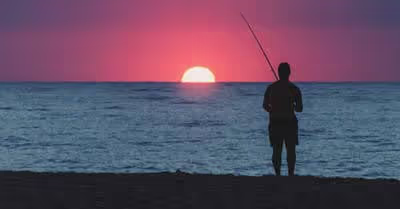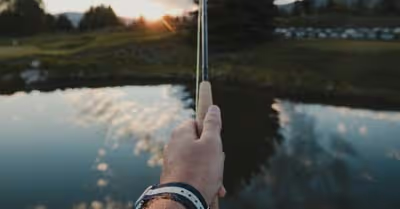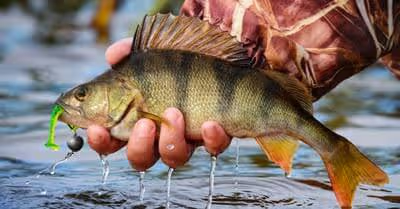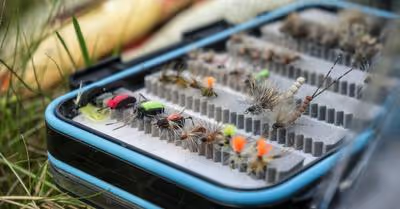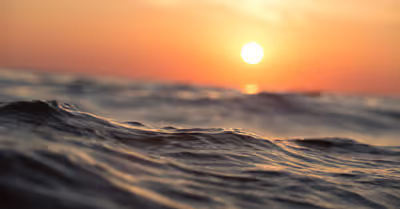Table of Contents
Benefits of Eating Fish
There’s a reason why dietitians recommend that we should eat at least one serving of 8 ounces of fish weekly. Simply put, fish are packed with nutrients that are great for your body, mind, and skin. That’s because fish are filled with omega-3 fatty acids and minerals such as magnesium, zinc, potassium, and iodine. They also have vitamins such as Vitamin D and Vitamin B2 (riboflavin).
As such, eating fish at least twice a week can greatly improve your health and lower your blood pressure while reducing the risks of heart attacks, arthritis, stroke, Alzheimer’s disease, and even depression! The omega-3 found in fish can also improve vision and eye health, fight acne, speed up metabolism, and lower cancer risks.
In essence, eating fish have many benefits that would fill an entire article. This is why we recommend that you eat the fish that you catch if it’s legally allowed. Some of the safest fish to eat include:
- Tilapia
- Sardines
- Tuna
- Rainbow trout
- Freshwater salmon
- Herring
- Mackerel
- Anchovy
Risks of Eating Fish
The health benefits of eating fish certainly outweigh the risks. Most fish contain bacterium and salmonella but these can be eradicated by cooking the fish at a temperature of 145 degrees. You should also keep in mind that eating fish that have been kept for too long may lead to foodborne illnesses, especially if undercooked or stored improperly. It’s, thus, important to ensure that you only eat fish that is fresh, stored properly, and perfectly prepared and cooked.
There are also some fish species such as stonefish and blowfish that are poisonous and not generally recommended for consumption. However, you can eat them if they are perfectly prepared to the point that they’re not deadly. In terms of eating raw fish such as sushi, it’s necessary to take precautions and look at its source. Make sure that it’s fresh and handled properly to mitigate the risks of poisoning.
The Risk of Eating Fish that You Catch
It’s also important to note that fish taken from polluted water bodies can be harmful to your health. Fish can take in hazardous chemicals such as PCBs, chlordane, dioxins, and mercury. These are deadly chemicals that are generally used in making insecticides, thermal insulation materials, and transformers, among others. Most of these chemical pollutants come from many easily noticeable sources such as sewage treatment plants and manufacturing factories. Other chemicals can come from sources that you can’t see such as farm fields, runoff from the streets, and chemical spills.
Most fish may be exposed to these chemicals in the water and through the food that they eat. They generally take up these chemicals into the bodies and are usually found in their internal organs, fats, muscle tissues, and skin. With this in mind, you should avoid eating fish that contain these chemicals as they can cause various diseases. For instance, PCBs can cause cancer while mercury can seriously harm your unborn baby or your child’s brain.
Some of the fish that may contain the highest levels of these chemicals include:
- Catfish
- Carp
- Largemouth bass
Fish to Avoid When Pregnant
In addition to the above-mentioned fish, pregnant women should avoid King Mackerel, shark, tilefish, swordfish, and Albacore tuna, especially if they have depressed immune systems. This is because these fish species generally contain harmful chemicals that may affect pregnancies and the unborn child.
Pregnant women should also avoid eating sushi or any raw fish since they contain bacteria that may affect the unborn child. If you must eat sushi or any raw fish during pregnancy, make sure that it is frozen first before preparation. This will, of course, prevent some problems but not all.
Can Children Eat Fish?
Needless to say, children are still developing and their bodies may be more vulnerable than those of adults. In other words, the levels of chemicals in fish that may not harm an adult can be deadly to a child. For this reason, it’s important to avoid giving your kids any type of fish that may have any trace of chemical however minute.
This doesn’t, however, mean that you shouldn’t give fish to your kids. Fish are a great source of nutrients such as Omega-3 and Vitamins D and B that are essential for the proper growth and development of kids. So when introducing fish to kids, you can start by giving them fish sticks and monitor how it reacts to their bodies and immune systems. We also recommend that you introduce your kids to fishing at an early stage so that they can learn a thing or two about the fish that are healthy to eat and those that are not.
How Can You know that the Waters are Polluted
It’s quite difficult to tell the levels of chemicals in a fish by simply looking at it or tasting it. It’s also impossible to tell whether or not a water body is polluted by just looking at it. Luckily, there are several ways to reduce the risks of eating fish that have these dangerous chemicals.
The first thing to do is look for cautionary signs that are posted along the water edges. It’s of great importance that you follow the guidelines that are printed on them. If there are no signs, it would be appropriate to check with your state, local or county health and environmental protection departments and seek their advice. Make sure that you find out with the authorities about the species and sizes of fish that may or may not be eaten from the waters that you are planning to fish. You can also seek advice from the bait and tackle shops near you where they sell fishing licenses.
What If The Body of Water Has Not Been Tested?
Keep in mind that some fish contain more chemical pollutants than others. However, it’s not possible to tell which ones have harmful chemicals by just having a look at them. The only way to tell is by having the water bodies and fish in these waters tested for levels of chemicals in an approved laboratory. But because it’s impractical to always take your catch to the lab to be tested, here are simple guidelines to follow to mitigate the risk of eating a polluted fish.
- Eat fish that generally feed on worms, insects, and other aquatic life such as perch, smelt, trout, and bluegill. Such types of fish do not commonly contain high levels of harmful chemicals.
- Eat young or small fish that are within the legal fishing limits. This is because they’re less likely to contain harmful chemicals than larger or older fish. This includes fish species such as smallmouth bass, lake trout, and walleye.
- Avoid eating fatty fish that generally feed on the bottom of lakes and rivers such as catfish, largemouth bass, and carp. This is because they usually have higher levels of chemicals.
How to Clean Fish to Reduce the Chemical Levels
Whether or not you suspect that your catch contains some chemicals, you should clean it appropriately to reduce chemical levels. The most important thing to do is to the skin the fish and remove fats, muscle tissues, and internal organs before cooking. These are the areas where dangerous chemicals are most likely to accumulate. Here are some added precautions.
- Remove the fats and skin before cooking
- Remove and throw away the head, guts, kidneys, and liver
- Thoroughly clean the fish with clean water and dress the fish as soon as possible
How to Cook Fish to Reduce the Chemicals
Cooking the fish properly can make a huge difference in the types and levels of chemicals remaining in the fish. You should, therefore, properly clean the fish, prepare it, grill it, bake it or broil it. You should also give it time and let the fats drain away, which can help in removing the chemicals that might have accumulated in the fatty parts of the fish. For added precaution:
- Avoid eating deep fat-fried fish. This is because frying the fish usually prevents the chemicals accumulated in the fatty parts of the fish to be eradicated.
- Avoid using excess drippings or broth that you generally use to make the meal more flavorful. This is because these drippings may ignite the negative effects of these chemicals.
- Make sure that you remove the skin of the fish or fillet it, especially if you love smoked fish.
Conclusion
While there are potential risks of eating the fish that you catch, the health benefits of eating your catch generally outweigh the dangers. This means that you should not avoid eating fish entirely if you want to benefit from the nutrients that eating fish provides to your body and mind. Instead, you should avoid fish species that are more likely to contain high levels of chemicals. You can do this by avoiding fishing in highly contaminated waters while also following the guidelines in place.
More importantly, make sure that you properly clean, prepare, and cook fish to ensure that you and your loved ones safely enjoy the benefits that come with eating healthy fish.
Happy fishing and happy healthy eating!
Recent Articles



